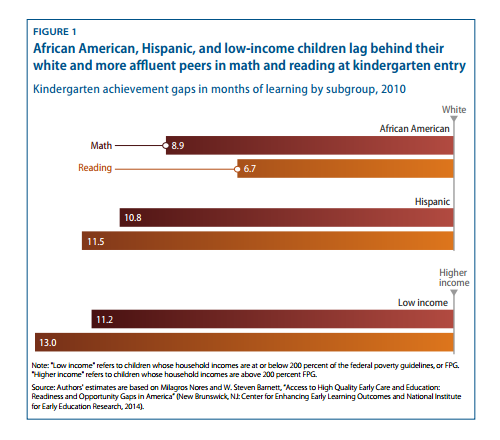By the time a low-income child enters kindergarten in America, they’re already woefully lagging their more advantaged peers — 11 months behind in math and 13 months behind in reading, according to a recent report from the Center for American Progress.

The figure at left, from the CAP report—“How Much Can High-Quality Universal Pre-K Reduce Achievement Gaps?”—illustrates the gulf between both low- and high-income children and minority and white children.
And those gaps only get wider as the years go on—to increasingly more significant effect. As James Heckman, a Nobel Prize-winning economist who has spent decades studying the effects of early childhood education, told theNew York Times:
The road to college attainment, higher wages and social mobility in the United States starts at birth. The greatest barrier to college education is not high tuitions or the risk of student debt; it’s in the skills children have when they first enter kindergarten.
[For more of this story, written by Dwyer Gunn, go to https://psmag.com/early-childh...7aa8983d1#.5h3d1kmq7]

Comments (0)